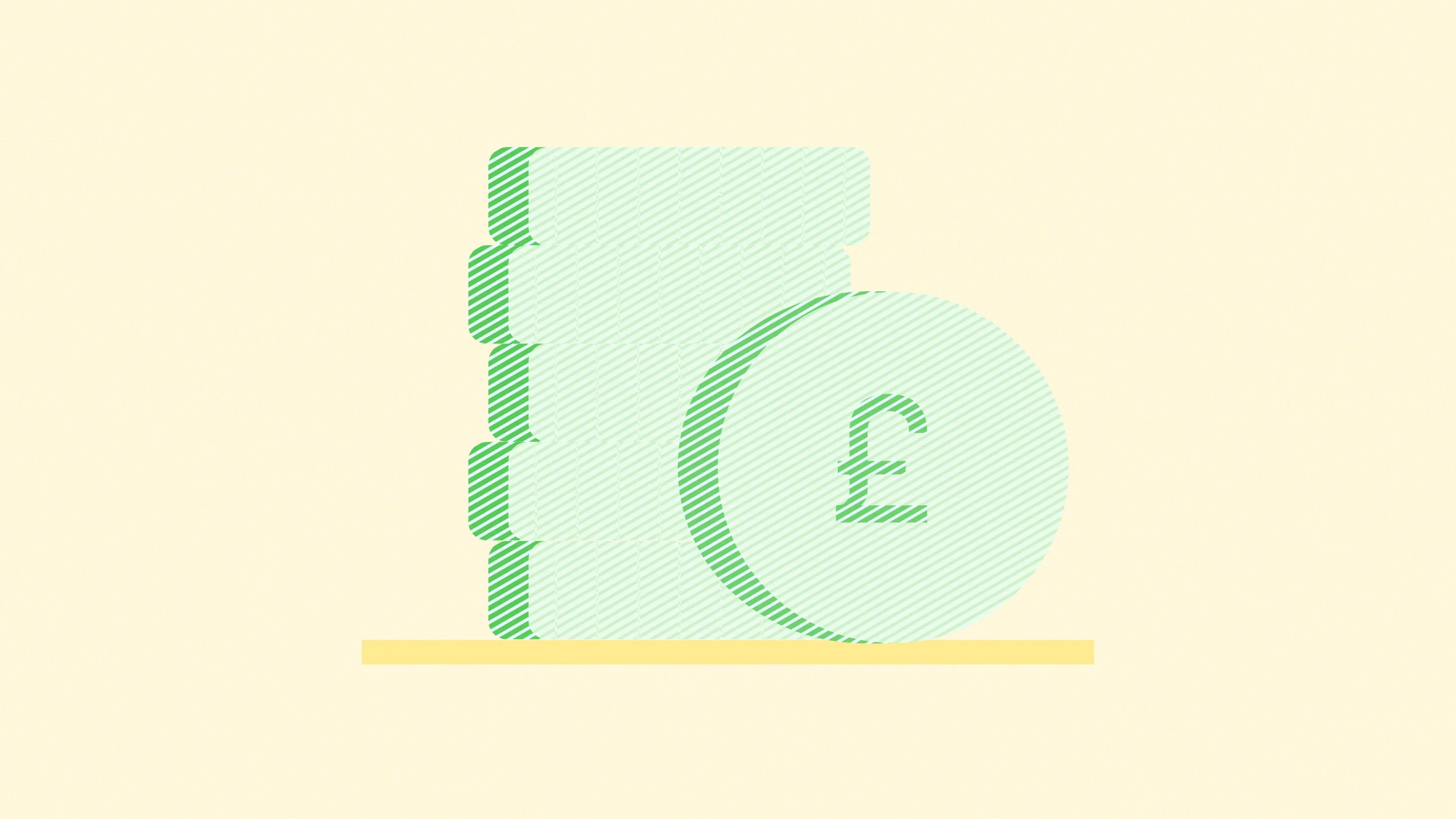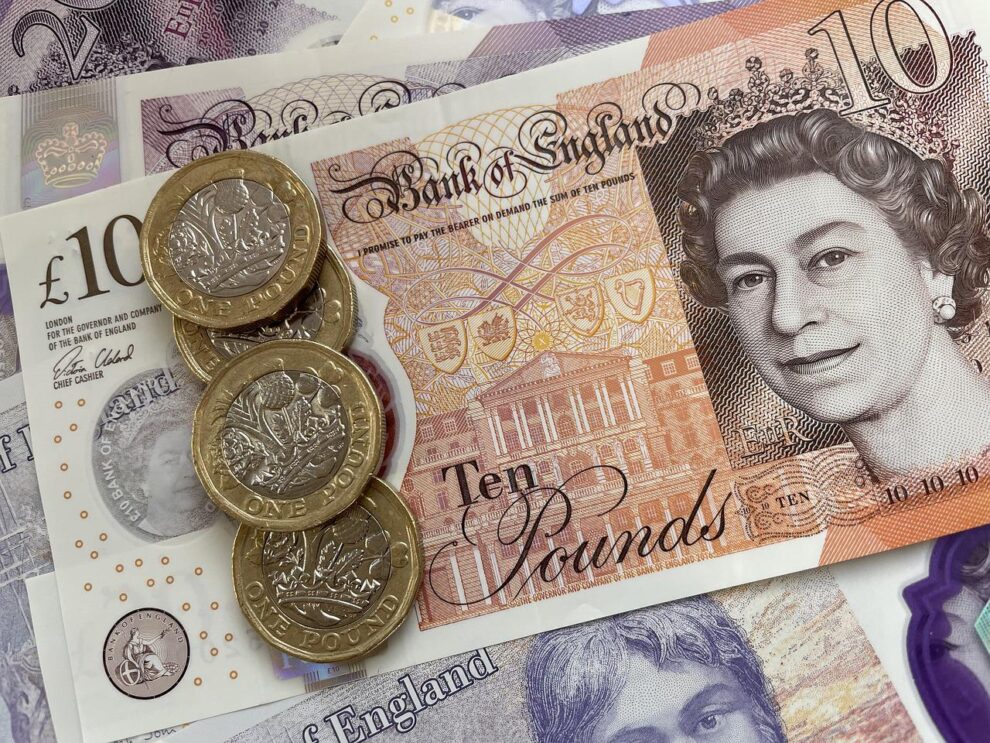
Pound Sterling: The national currency of the United Kingdom and some territories associated with the British empire (Isle of Man, Gibraltar, South Sandwich Islands, the British Antarctic Territory, Jersey, Guernsey, Tristan da Cunha, and South Georgia).
Key takeaways
- The Pound Sterling is the national currency of the United Kingdom and some territories associated with the British Empire (Isle of Man, Gibraltar, South Sandwich Islands, the British Antarctic Territory, Jersey, Guernsey, Tristan da Cunha, and South Georgia).
- The Bank of England is responsible for the issue, circulation, and regulation of the Pound Sterling.
- In 1971, the UK switched to the decimal currency system which introduced the penny and simplified currency calculations.

Source: Forex School Online
What is a Pound Sterling?
A Pound Sterling, often referred to as a “pound”, is the official currency of the United Kingdom and some of its territories. It is one of the world’s oldest currencies still in use today. The pound is represented by the symbol “£” and is often abbreviated as GBP, which stands for “Great British Pound.”
It is further divided into 100 smaller units called pence which are issued as coins. The Bank of England is responsible for the issue and regulation of the currency.
It has a long history and is widely traded on the international foreign exchange markets. It is also one of the world’s major reserve currencies. The exchange rate of the pound fluctuates based on various economic factors and geopolitical events but it plays a significant role in the global economy.
History of the Pound Sterling
The Pound Sterling has its roots in the Roman monetary system that was introduced to Britain during the Roman occupation (43-410 AD). A pound of weight was used to describe a unit of currency and it stemmed from the Latin term “libra”. After the fall of the Roman Empire, various Anglo-Saxon kingdoms minted their coins, including silver pennies. These coins eventually became the basis for the pound’s monetary system.
In 1066, William the Conqueror introduced the silver penny as the standard currency in England, and the pound was divided into 240 pennies. Over time, the pound evolved, and various denominations of coins were issued, including shillings and crowns. The gold noble also became an important coin during this period. Queen Elizabeth I introduced the first official paper currency in the form of promissory notes. The Pound was divided into 20 shillings, and then, each shilling was divided into 12 pennies.
It was redefined in decimal terms in 1971 when the UK adopted a decimal currency system. Under this system, the pound was divided into 100 new pence, which made calculations simpler.
The Pound Sterling has remained in use as the official currency of the United Kingdom and various British territories. The Bank of England, established in 1694, has played a crucial role in issuing and regulating the currency.
The UK’s decision to join the European Economic Community (EEC) in 1973 had implications for the Pound. While it remained the national currency, it was linked to the European Exchange Rate Mechanism (ERM) until Black Wednesday in 1992 when it was forced to leave due to economic pressures.
The Pound has experienced fluctuations in its exchange rate, influenced by various economic and political events, including Brexit. The referendum in 2016 resulted in the UK’s decision to leave the European Union, and this had a significant impact on the value and stability of the pound.
Today, it is a widely traded and important global currency, and its history reflects the evolution of the British economy and monetary system over many centuries.
Current Pound Sterling Notes
- £5
- £10
- £20
- £50
Coins are also used and are in circulation as one penny (1p), two pence (2p), five pence (5p), ten pence (10), twenty pence (20p), fifty pence (50p) one pound (£1), and two pounds (£2).
Some facts about the Pound Sterling
- The Pound Sterling is one of the world’s oldest currencies still in use, with over a thousand years of history.
- In 1971, the UK switched to a decimal currency system, with the Pound being divided into 100 pence (singular: penny). This change simplified currency calculations.
- The Pound Sterling is one of the world’s major reserve currencies, held by central banks and financial institutions as part of their foreign exchange reserves.
- The decision of the United Kingdom to leave the European Union, commonly known as Brexit, had a substantial impact on the Pound Sterling’s value and its economic relationships with other countries.
- Various historical figures have appeared on Pound Sterling banknotes, including Winston Churchill, Jane Austen, J.M.W. Turner, and Alan Turing.
- Pound Sterling banknotes have gone through several design changes over the years to incorporate enhanced security features and updated images.
- Pound Sterling banknotes issued by the Bank of England are considered legal tender in England and Wales. However, Scotland and Northern Ireland also have their legal tender banknotes which have equal value with the Pound Sterling notes.
- Some rare and collectible Pound Sterling banknotes, particularly older designs or those with printing errors, can be of significant value to collectors.
Conclusion
The Pound Sterling has a long and eventful history and is not only the official currency of the United Kingdom but also one of the world’s oldest and most recognized currencies. Its rich evolution through thousands of years has made it a valuable part of history. Like every other currency, its value is subject to fluctuation. The Pound Sterling remains a reflection of economic and geopolitical forces on the global stage.
Start building wealth on Cowrywise

ALSO READ

1 Comment